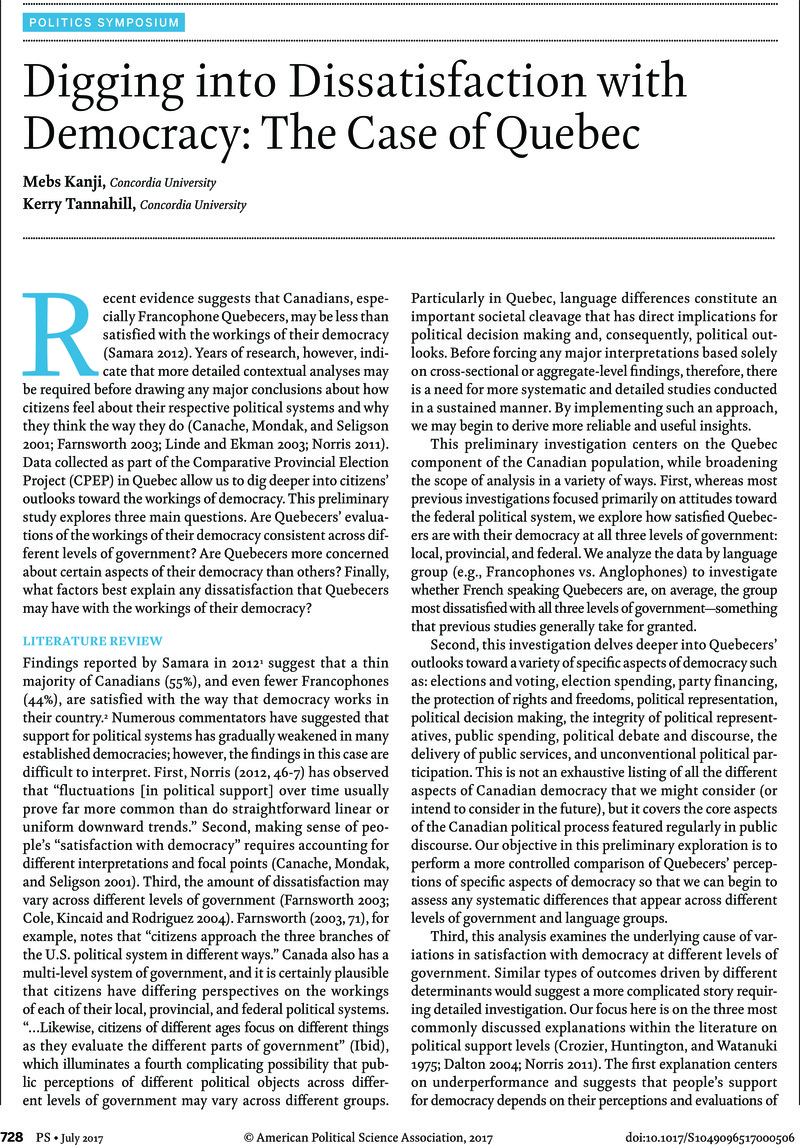Blais, André and
Gidengil, Elisabeth.
1991.
Making Representative Democracy Work: The Views of Canadians. Research Studies. Vol. 17. Ottawa: Royal Commission on Electoral Reform and Party Financing and Canada Communications Group, Supply and Services Canada and Dundurn Press.
Google Scholar 